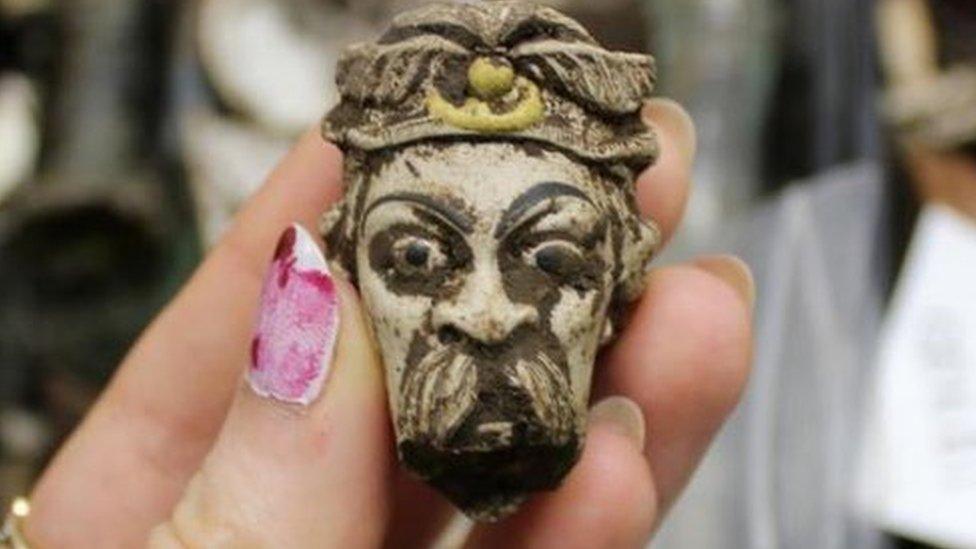Digging for Britain: Hull graveyard secrets unveiled
- Published
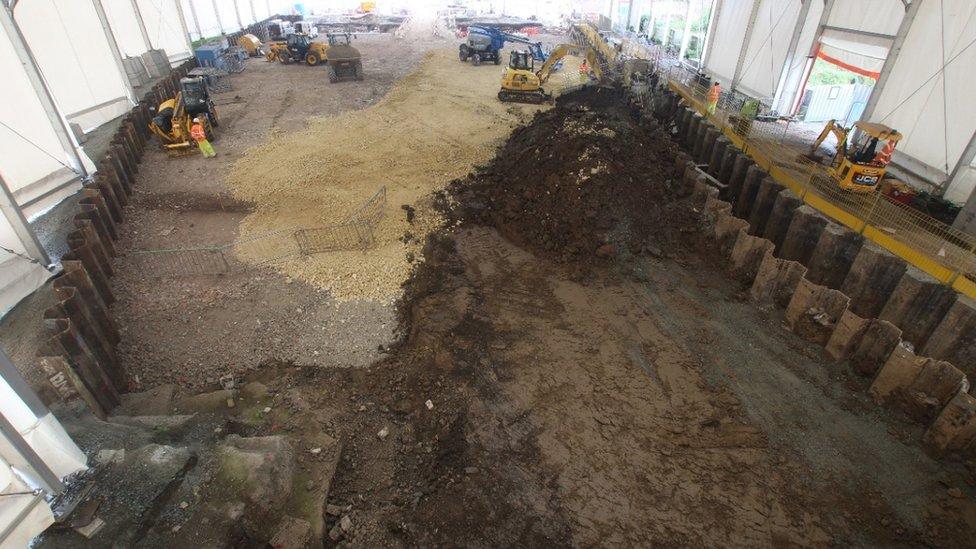
Archaeologists worked for months to exhume 9,500 bodies from the site
Artefacts and human remains recovered from a major archaeological dig in Hull show the links between the city and the sea, according to a TV programme.
Digging for Britain, on BBC Two, examines finds made during the excavation of the city's Trinity burial ground.
The 2021 dig, which exhumed thousands of bodies, was planned as part of a £335m road overhaul.
The finds give insight into life in the city in the 18th and 19th centuries.
A 70-strong archaeological team dug up the remains of 9,500 people and found a number of items buried with them.
Prof Alice Roberts, who presents the programme, said some of the finds were "spectacular".
"They reveal how closely the people of industrial age Hull were tied to the sea," she said.
"Hull as a city on the ocean reaching out across the world, so we are seeing the identity of the city at this period."
Other burial places of the period have been excavated in England, but the Hull site is the furthest north.
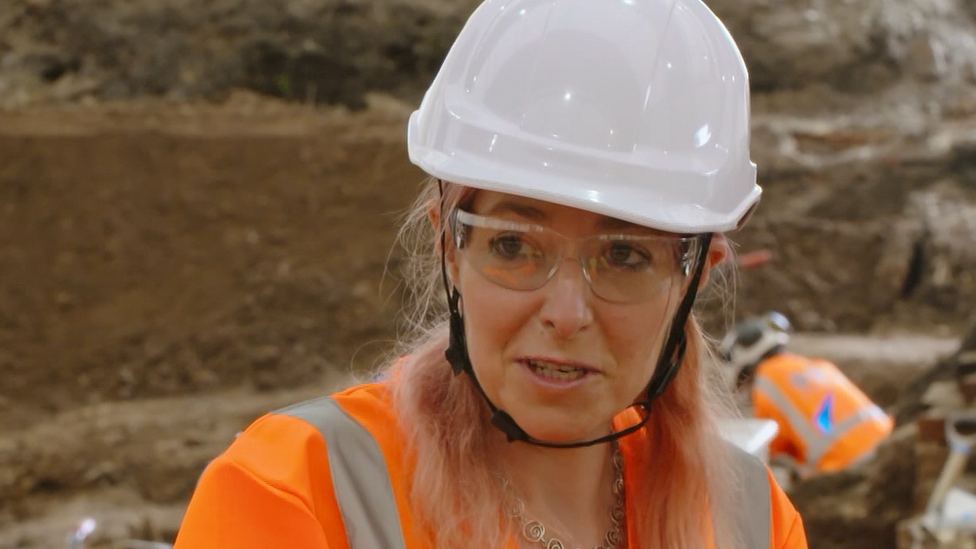
Prof Alice Roberts said the finds at the site showed how closely linked to the sea the people of Hull were in the past
Fran Oliver, from National Highways, said they had a lot of information about the burial ground before beginning work on the A63 Castle Street improvement scheme.
"We knew exactly the time period the burial ground was open and we had a really good estimate of the number of people buried in there," she said.
Two large tents were installed to cover the work and Ms Oliver said the team had shown great "care and respect" to the burials.
"Whether it was a particularly exciting burial, because it revealed something, or not, everybody has been treated with such dignity and respect."
A victim of a 19th Century shipping disaster is believed to be among the bodies recovered from the site.
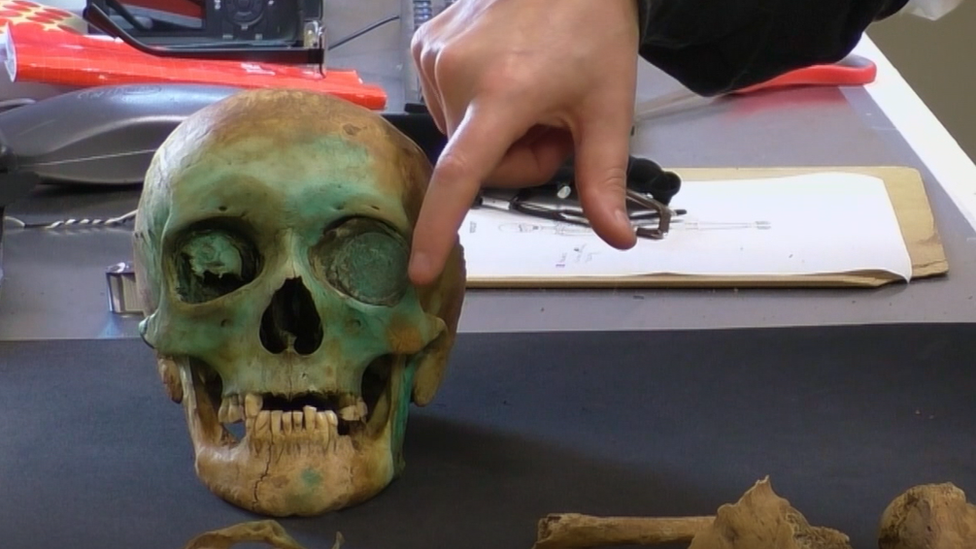
Some of the bodies exhumed had coins placed over the eyes
A number of bodies were found with coins placed over their eyes.
"Placing coins over the eyes of the dead was an ancient practice and became common again in the Victorian period, possibly to keep the deceased's eyes closed," Prof Roberts said.
Among the items buried alongside their owners were everyday objects such as combs, coins and clay pipes, some of which bore decorative patterns.
"Some relating to football and some relating to the specific area, so for example some have naval themes," Ms Oliver said.
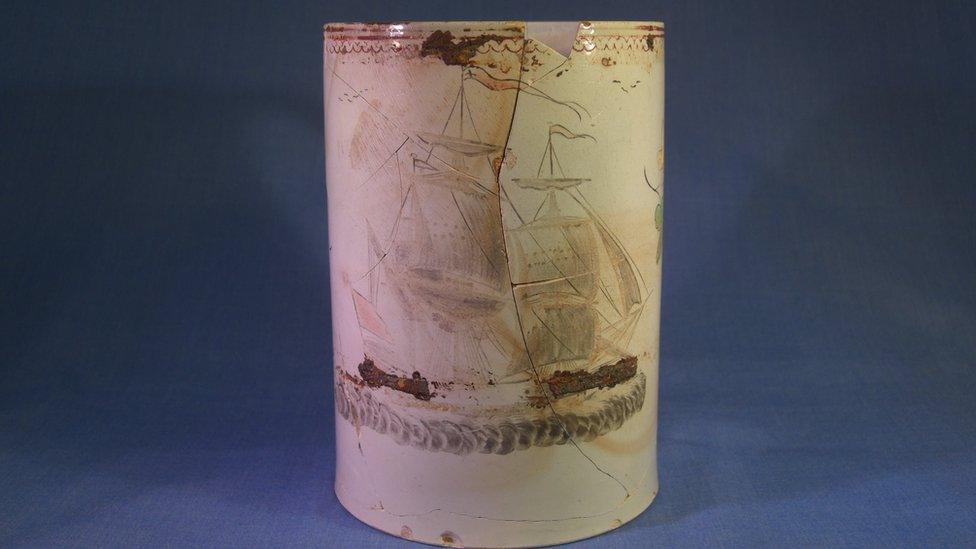
This tankard is just one of hundreds of items recovered from graves at the site
A lot of ceramics were also found including plates and a near complete pearlware tankard, dating to between 1800-1820.
The remains will all be reburied in a part of the site not needed for the improvement scheme, Ms Oliver said.
In addition to the burials, finds also included the remains of an 18th Century jail, a suspected World War Two bomb site and traces of a medieval settlement.
Digging for Britain, featuring the Hull excavation, can be viewed on BBC Two at 20:00 GMT and on BBC iPlayer.

Follow BBC East Yorkshire and Lincolnshire on Facebook, external, Twitter, external, and Instagram, external. Send your story ideas to yorkslincs.news@bbc.co.uk, external.
Related topics
- Published30 December 2021
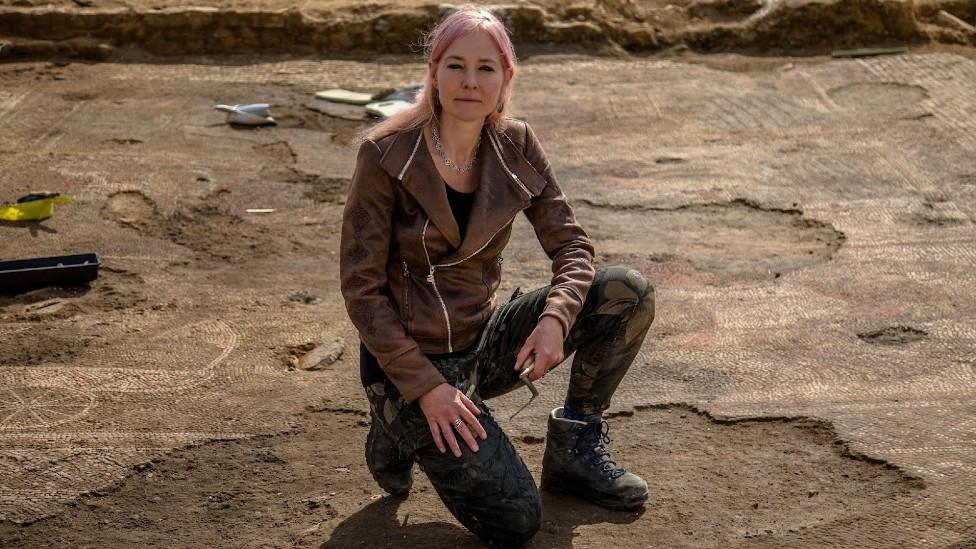
- Published13 August 2021
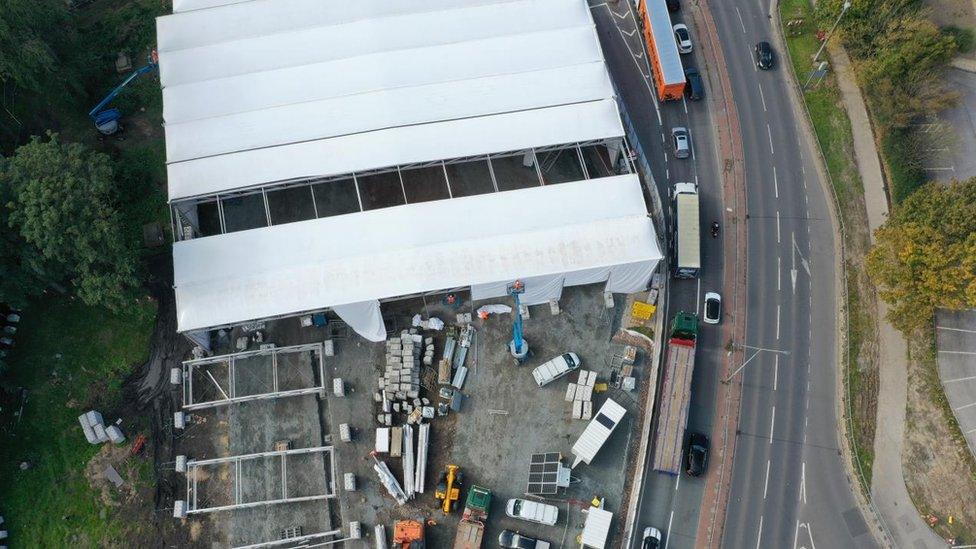
- Published1 December 2020
